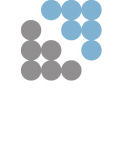The Importance of Peer Review in Improving Audit Quality
By Frank R. Boutillette, CPA, CGMA, ABV, Withum and Glenn Roe, NJCPA Peer Review Manager –
August 30, 2022

Peer review, the external review of a CPA firm’s accounting and auditing quality control system, has become increasingly important. In 2014, the American Institute of CPAs (AICPA) launched its Enhancing Audit Quality (EAQ) initiative, which aims to continually improve the quality of private company audits that the public relies on to make critical financial decisions. Since then as business transactions have become more complex, there has been increased scrutiny on financial statements by regulators and stakeholders. The accounting and auditing standards addressing these transactions have become more comprehensive, and CPAs need to be more diligent in obtaining proper education and training to understand the impact these changes have on the financial statements they are auditing.
The peer review process has played a leading role in the EAQ initiative as the AICPA has taken findings from the peer review process and created training for CPAs with the goal of improving the quality and effectiveness of their audits.
6 Areas of Quality Control
The peer review process is a valuable tool in evaluating a CPA firm’s system of quality control for performing accounting and audit work. There are six areas addressed by a system of quality control:
- Leadership — What tone is being set by those at the top of the firm? Is the leadership willing to invest the time and cost to developing a quality control system that enables the firm to meet professional standards?
- Ethical requirements — Is the firm independent of their client and have all personnel followed the integrity and objectivity required of the CPA profession?
- Acceptance and continuance of client relationships and specific engagements — What policies/processes/criteria are in place that govern which clients to accept and which to reject due to integrity? Are the types of engagements within the firm’s expertise? If not, what does the firm do to gain the expertise and who does the firm use for training?
- Training and education — What is being done to professionally train and educate the staff in the firm? Does the training and continuing education (CPE) for each partner and staff member correlate with the engagements they’re working on? A poorly educated and trained staff will result in deficiencies in the performance of the accounting and auditing work.
- Quality of engagements performed — Has the firm performed the work per professional standards? Has the firm followed its own quality control policies? Does the firm use outside CPAs to assist with the review of riskier engagements? With the volume of standards and the ever-changing nature of them, it is critical to have practice aids and a good library of resources to guide the firm’s work. What types of resources is the firm using?
- Monitoring progress — Healthy and successful CPA firms periodically review and challenge their adherence to not only the standards but their own specific firm policies. During this monitoring procedure, does the firm identify items needing improvement? If so, what have they implemented to address the issue? If deficiencies are not noted during monitoring, but are identified during the peer review, perhaps the monitoring process itself needs improvements.
Peer Review’s Role
The ability to deliver consistent quality work is contingent upon maintaining high standards in each of the above quality control areas. The stakeholders — the company’s management, investors and regulators — rely on the financial statements audited by CPAs to make their critical decisions. It is vital that these stakeholders can rely on the CPAs work. This is where the peer review process becomes so crucial.
Every three years, CPAs must have a peer review performed to evaluate its adherence to professional standards as well as its system of quality control. This process, performed by an independent and outside party, is designed to assess each of the six areas above. If issues of non-adherence are found, the CPA firm must advise the peer reviewer of the firm’s plan to correct the deficiencies/findings. Any items identified during the peer review will become the focus of the firm’s subsequent peer review in three years.
True, there is a cost to maintaining high standards and the AICPA requires its members to undergo it, but the investment is well worth the cost. The public demands quality reliable information, and when a CPA firm puts their name on an opinion, they must make sure their work can support their word.
 | Frank R. BoutilletteFrank R. Boutillette, CPA, CGMA, ABV, is partner emeritus at Withum and immediate past chair of the NJCPA's Peer Review Executive Committee. More content by Frank R. Boutillette: Learn more from Frank R. Boutillette: |
 | Glenn S. RoeGlenn S. Roe is the NJCPA peer review manager. |